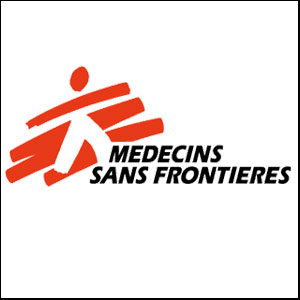 [Médecins Sans Frontières, Link] Gilead Sciences has been seeking patents in India for the hepatitis C drug sofosbuvir. The patent applications have been challenged by groups of people living with hepatitis C and HIV through ‘pre-grant oppositions.’ The patent just granted by India’s patent office was initially rejected in January 2015, just before President Obama’s visit to India, which was seen as vexing the US. Gilead appealed the rejection and the patent has now been granted.
[Médecins Sans Frontières, Link] Gilead Sciences has been seeking patents in India for the hepatitis C drug sofosbuvir. The patent applications have been challenged by groups of people living with hepatitis C and HIV through ‘pre-grant oppositions.’ The patent just granted by India’s patent office was initially rejected in January 2015, just before President Obama’s visit to India, which was seen as vexing the US. Gilead appealed the rejection and the patent has now been granted.
Patents for sofosbuvir have been rejected in Egypt, China and Ukraine, and further patent oppositions have been filed in Argentina, Brazil, Russia, Thailand and the EU. Another key application on the prodrug of sofosbuvir is pending before the Kolkata patent office in India, and several oppositions to its grant have been filed by patient and public interest groups.
While Gilead has signed licences with multiple generic manufacturers in India to produce the drug and sell it in the world’s poorest countries, these producers are prohibited from selling more affordable versions of sofosbuvir to many middle-income countries, where approximately 50 million people with hepatitis C live. This is leaving people in these countries vulnerable to the high prices Gilead chooses to charge.
Gilead has priced sofosbuvir at US$1,000 per pill or $84,000 per 12-week treatment course in the US, and has earned more than $15.5 billion in sales from the drug over 2014 and 2015 alone.
Quotes from two organisations (Médecins Sans Frontières, I-MAK) follow:
“This patent decision is bad news for people living with hepatitis C in many developing countries; MSF is currently treating people living with hepatitis C in India, Pakistan and Myanmar, but we know there are millions of people in other countries who now won’t have affordable access because of this decision. Medical humanitarian and patient groups have been worried that the Indian government will cave into US pressure to dilute the independent functioning of the patent office in a way that patent claims are granted far more easily to US companies. This decision will now stop those Indian generic companies which were planning to enter the market independently from suppling not just patients in India but also those in middle-income countries with large numbers of people living with hepatitis C, which Gilead currently forbids from receiving sofosbuvir produced under Gilead’s licensing deal.”
– Leena Menghaney, South Asia Regional Head, MSF Access Campaign
“Sofosbuvir is not deserving of a patent – it was developed using previously published techniques that have been used repeatedly in other antiviral drugs. In fact, Gilead’s unjustified patents on sofosbuvir have already been rejected by China, Ukraine and Egypt. Unfortunately, the Indian patent office’s decision is flawed, ignores the scientific facts and fails to uphold the standards of Indian patent law to ensure only new inventions are patented. I-MAK and the Delhi Network of Positive People (DNP+) will appeal the decision to ensure the Indian patent system stays accountable to the integrity of the law and to the public’s health.”
– Tahir Amin, Co-founder and Director of Intellectual Property, Initiative for Medicines




